
The staff cars and other regular vehicles have to slow down and wait near an infrared (IR) scanner, which reads the faint radiation of an IR tag pasted on the vehicle's windshield.
The boom barrier opens if the tag is found in its database. The process is quite efficient and works unhindered. However, the only flip side is that the process does not work when there is no tag, or the tag is damaged, or it cannot be identified for some reason.
The system proposed here takes care of such problems. When a vehicle approaches the boom barrier, a speaker automatically asks the driver to slow down and stop briefly within four metres of the scanner.
A high-fidelity camera then reads the vehicle's registration number on its registration plate and checks whether it is there in its database. If the number is found in the database, the boom barrier opens automatically and the driver is told on the loudspeaker to proceed.
Whenever a new unregistered vehicle arrives, its registration number is updated in the database (if the visitor is expected to visit regularly henceforth) and the process keeps running. This system requires no IR tag, no pasting of the tag on vehicles' windscreens, and no big disk antenna for an IR scanner at the gate. The process can be further refined, so that the vehicles need not stop at all, by using a better camera and computer.
To achieve this, a powerful Raspberry Pi 4 computer is needed for this project. For measuring distance, the same image analytics can be deployed. But to make the process simple, deployment of an HC-SR04 ultrasonic sensor is recommended.
The moment a vehicle comes within four metres distance, the camera takes a frontal picture of the vehicle and compares its registration plate number with the already available numbers in its database.
This story is from the April 2023 edition of Electronics For You.
Start your 7-day Magzter GOLD free trial to access thousands of curated premium stories, and 9,000+ magazines and newspapers.
Already a subscriber ? Sign In
This story is from the April 2023 edition of Electronics For You.
Start your 7-day Magzter GOLD free trial to access thousands of curated premium stories, and 9,000+ magazines and newspapers.
Already a subscriber? Sign In
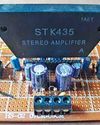
STK435 IC-Based STEREO AMPLIFIER
This stereo AF amplifier uses the STK435 IC, a highly popular choice due to its simplicity.

A SEWER DRAIN SHIELD For Smart Cities
Drainage systems are vital for storm water management but often transport pollutants, especially plastics, to rivers and oceans, harming ecosystems.
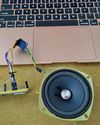
ESP32 SPEECH FUNCTION: Text To Speech
Speech capability in technology primarily has two dimensions: text to speech (TTS) and speech to text (STT). This device focuses on TTS.
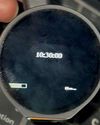
World's Smallest Programable INDUSPHONE DESIGN
This is the second part of designing the world’s smallest phone, where the UI is integrated with the basic functions of the phone.
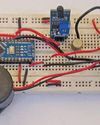
FLAME-SENSING FIRE ALARM Using An Arduino Nano
Fire safety alarms are crucial in both residential and industrial environments.
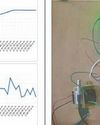
loT-Based Distribution Transformer CONDITION MONITORING SYSTEM
The proposed IoT-based distribution transformer condition monitoring system enables real-time monitoring of distribution transformers, identifying such deviations as overload conditions and overheating.

Wi-Fi 6 AND Wi-Fi 7 Powering The Next Wave of Smart Connectivity
Wi-Fi 6 leads with faster data rates and reduced latency while upcoming Wi-Fi 7's backward compatibility will facilitate gradual upgrades from Wi-Fi 6, easing transitions. However, advanced features like multi-link operation (MLO) and ultra-low latency may command a premium, making Wi-Fi 7 suited for high-end applications.

CHARGE FORWARD: High-Voltage Batteries And MSMEs Can Fuel INDIA'S EV REVOLUTION
A nuanced explanation of low- and high-voltage EV batteries by Dr Gokhale, Vice President for Battery Technology at JSW Energy, illuminates their advancements and influence. The essential role of MSMEs and academia in developing a strong EV ecosystem emerges, marking their significance for India's push towards self-reliance in this innovative field.

"MILES TO GO Before I Sleep"
A teacher illuminates the path to success through the light of knowledge, yet some teachers extend that light to society through their contributions and research. Known as the architect of the modern M3 electronic voting machine (EVM) and the voter verifiable paper audit trail (VVPAT) that transformed India's democratic process, Prof. (Dr) Rajat Moona's journey began in the modest town of Bareilly. Here is his story, as recounted to and written by EFY's Yashasvini Razdan.
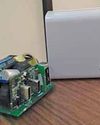
STARTUPS & INNOVATORS
1 One Charger To Charge All Your Devices | 2 Harnessing AI Technology For Efficient Pest Management | 3 Wireless Light-Based Communication With Velmenni's Technology